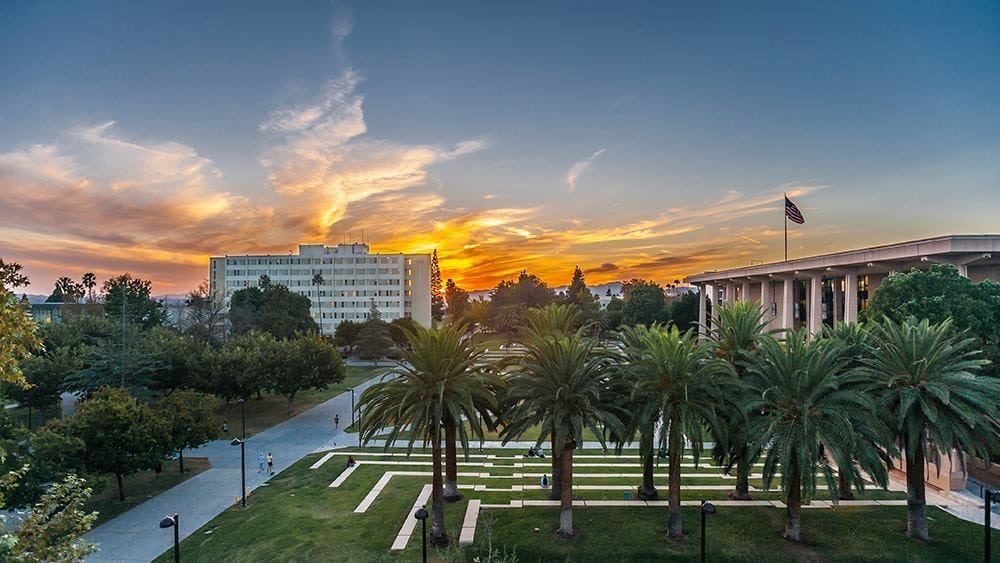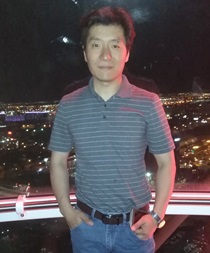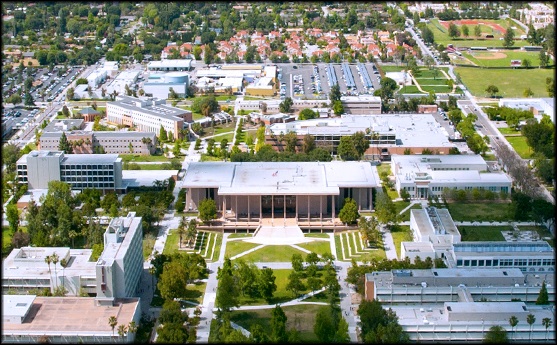

Harold F. Giedt Lecture Series
Painted in Oil, Composed in Ink:Late-Qing Ekphrastic Poetry and the Encounter with Western-Style Painting

Presented by Dr. Frederik H. Green
Associate Professor, Dept. of Modern Languages and Literature, San Francisco State University
Time:11-12.30 PM, March 7th, Thursday
Location:Extended University Commons(EU)133, CSUN
Abstract:This talk explores the poetic responses of several Qing-dynasty poets to their encounter with Western-style oil painting. Unfamiliar with Western post-Renaissance techniques, most notably the use of perspective and of oil paints, these poets expressed their anxiety, distaste, curiosity and appreciation of Western aesthetics and cultural practices through their poems. As such, these poems can be read as metaphors for the complex ways in which China’s late imperial elites negotiated their country’s encounter with the West, both as a tight-knit group bound by political and poetic conventions and as a loose network of individual thinkers whose varied talents allowed for highly original reflections on the cultural potential of East-West encounters.
Frederik H. Green is associate professor of Chinese Language and Literature at San Francisco State University where he is also the associate director of the SF State Chinese Flagship Program. Originally from the north-German town of Rendsburg, Dr. Green received a BA in Chinese from Cambridge University(St. John's College)and a Ph.D. in Chinese literature from Yale University. He has studied and conducted research at the University of Tokyo, Lingnan University in Hong Kong and various places in China and Taiwan. His research focuses on Republican period literature and visual culture, Sino-Japanese relations, and post-socialist cinema. His book Bird Talk and Other Tales:The Fictional Worlds of Xu Xu is forthcoming in 2019.
This event is sponsored by CSUN China Institute and the College of Humanities. It is free and open to the public. Campus map is available at this link, www.csun.edu/csun-maps, and public parking is available on campus www.csun.edu/parking/visitor-parking-information). Please contact Dr. Weimin Sun at weimin.sun@csun.edu(818-677-6461)for more information.
Fusion of Reigns and Theocracies:Mysteries of Ancient Chinese Bronze
模范·神——商周时期青铜铸造与中国传统文化

Presented by Dr. Shuai Wang (mostly in Chinese but with English PPT)
College of History & Culture, Shaanxi Normal University
Time:11-12.30 PM, March 15th, Friday
Location:Sierra Tower 503, Philosophy Conference Room, CSUN
Abstract:3,000 years ago, in order to communicate with God and effectively manage society, bronze utensils are regarded as the most important tool of theocracy and royal power by ancient Chinese rulers. The shape of the Shang and Zhou dynasty bronzes relies on machining, while the patterning is based on geometric composition, which is clearly different from the popular sculpture art and painting techniques of other ancient civilizations in Eurasia. In the operation of these original processes, the Chinese gradually learned the rule of size and model, which is the etymology of the "Gui'Ju" and "Mo'Fan" in Chinese today. Bronze containers cast in the model according to the rules are standard products,. That is the reason why in the vast land of China, it is possible to unearth similar bronzes though thousands of miles away. The concept of "Mo'Fan" process has gradually solidified into a social ideology that has been passed down for thousands of years to the present. 距今3000多年前的中国古代统治者为了与神沟通并有效管理社会,将青铜礼器视为最重要的神权与王权工具。商周青铜器的型体制作依靠的是机械加工,而纹饰制作则通过几何构图,这些都明显区别于欧亚大陆其它古文明所流行的雕塑艺术和绘画技巧。在这些原始工艺的操作中,中国人逐渐学会矩尺定规且依模制范,这就是当今汉语“规矩”、“模范”的词源。按规矩在模范里铸造的青铜容器,属于规范产品,这也解释了在广袤的中华大地,为何虽远隔千山万水,亦可出土相似的铜器。“模范”工艺思想,被逐渐固化成社会意识形态,绵延千年,一直被传承至今。
Bio:Dr.Wang Shuai is from Shaanxi Normal University in Xi 'an, China , who is mainly engaged in the teaching and research work of ancient Chinese characters, ancient bronzes and museums subject. In recent years, he has carried out in-depth exploration in the field of the evolution of the ancient characters and the bronzes of the Shang and Zhou Dynasties.
This event is sponsored by CSUN China Institute and the College of Humanities. It is free and open to the public. Campus map is available at this link, www.csun.edu/csun-maps, and public parking is available on campus www.csun.edu/parking/visitor-parking-information). Please contact Dr. Weimin Sun at weimin.sun@csun.edu(818-677-6461)for more information.


















